Arts & Entertainment
What the Blade means to me
Former employees reflect on impact of the newspaper
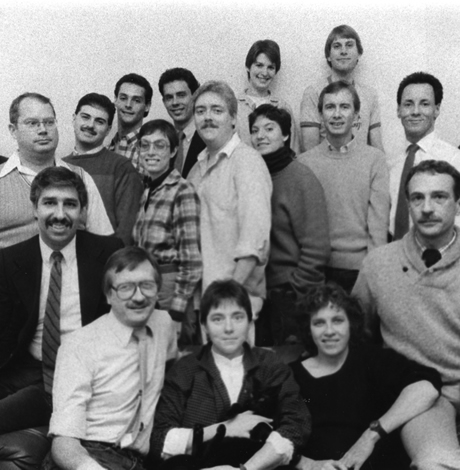
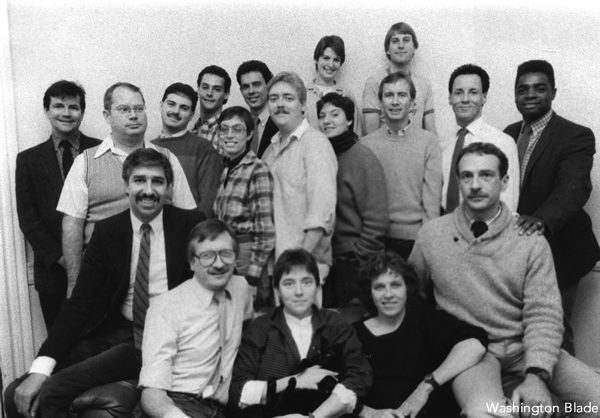
As we wrap our yearlong celebration of the Washington Blade’s 50th anniversary, we wanted to provide space to former employees to reflect on what the newspaper means to them. Here is a sampling of what they had to say. Thanks to everyone for contributing.
JERYL PARADE, Blade account executive, 2009-2016
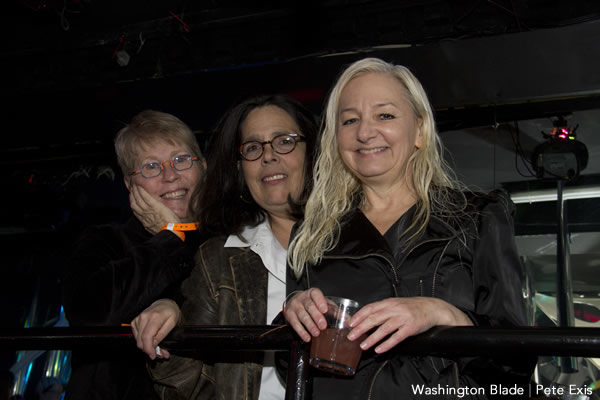
“I need to tell you this is the last issue of the newspaper you will be delivering. It’s not you. It’s us. We’re shutting down.”
“What will you do?”
“Look for a job. But not here. In D.C.
“You should apply at the Blade.”
“The Blade?”
“We’ve been there trying to get their distribution business. You should see the offices. They’re beautiful”.
“Yeah. OK. Thanks for the advice.” But I’m not gay.
On July 26, 2009, I emailed publisher Lynne Brown my three-page resume with 18 bullet points of publishing accomplishments. She responded on July 31, 2009. “Thanks for writing. There are only opportunities in life.”
In a subsequent email we agreed to meet on Wednesday at 11 a.m. Lynne wrote, “We are generally a casual group. So dress to be yourself.”
I did not know if she meant this or was being crafty. Should I really show up in a ‘90s Goth thing? I decided on a business suit. The Blade is, after all, a business.
And then some!
Happily I got the job. It was advertising sales. I had been a manager for 25 years, but when you work with clients, as I had, you are in sales.
I am able to tell on the first day of a new job if it is going to work out. On that first day — even though all I did was read the employee manual — I felt good. I was breathing in fresh air.
The next day I made my first sales call. It resulted in a sale. You know it can take 10 or more calls or emails to connect with someone and five or more contacts with said someone to seal the deal. If you’re lucky. Not so with the Blade. I was batting 1,000 percent!
Still, I was feeling stilted compared to my debonair coworkers. I remember seeing a team photo from the previous holiday season. Everyone dressed in black. I don’t think anyone was smiling. I would never be as cool as that.
About two and a half months into my tenure, on Monday, Nov. 16, 2009, we came in to work and were told (by the then parent company) to go home. Plenty has been written about the days and weeks that followed. I won’t go into that here. I consulted with my father about what to do next. I told him how the employees had a plan to keep publishing. My dad advised me to stay. He said, “It might be better.”
From then on I learned how to work on a commission-only basis and have confidence in my own and our success. I had always worked at a desk, in an office. Now I was free. An advertiser would call me on my cell while I was on the streets of downtown D.C. How cool was I now? I was Blade cool.
One of my most vivid memories of working for the Blade is from 2013 in the Venetian Jewish Ghetto. My friend was on a tour while I was in the piazza taking a call from the Washington Women’s Rugby Football Club (DC Furies) about advertising in our LGBTQ Sports Issue. I had sent an email blast earlier that week from our hotel room in Rome to let everyone know I had previewed the content and it was amazing!
Being “not gay” was never an issue. My advertisers and co-workers did not care which of the letters comprising the acronym I was. I had always assumed it was A for Ally. Now I know. It’s G. For Grateful.
KEN SAIN, Blade news editor, 2003-2005
Perhaps the most important thing we have learned since Stonewall is that visibility is everything. Many of the advances the LGBTQ community has made in these past decades are because ordinary people had the courage to come out.
Each generation has made it easier for the next, and the current one will make it even easier for those who follow. It was far easier in those early years for an Anita Bryant and others to go argue for discrimination when it was just some drag queens no one knew in San Francisco who were denied rights and being assaulted.
It’s a lot harder to make that case when it’s your uncle, or sister, or child.
So yes, give credit to the leaders for inspiring us and willing to be the face that took the criticism. But remember that each of us who had the courage to tell our truth to family and friends and co-workers also did our part to help change public opinion.
And give some credit to the Washington Blade. For 50 years it has been covering the struggle, helping to inspire new generations by telling the stories of those who came before. It was a source of news for our community when others didn’t even acknowledge our issues. The Blade did so while maintaining the highest standards of journalism and ethics.
I know from my time as news editor what a vital role the Blade has in the community. I like to think that by covering the community fairly and with integrity we achieved our goals of informing and in some cases entertaining readers. I also believe that by putting a spotlight on the stories of our community, we helped moved the needle on public opinion in some small way.
I am deeply proud of my time working for the Blade and the work we did. There is something special about working with quality people on a righteous cause. Our cause was to show that we could do great journalism for LGBTQ readers and keep them informed of the issues that that in many cases no one else was covering.
In doing so, we helped make our community more visible. And as we’ve learned during these past 50 years, being more visible is one key to being accepted.
Happy 50th anniversary, Blade.
KRISTINA CAMPBELL, Blade reporter, managing editor and editor, 1992-2002
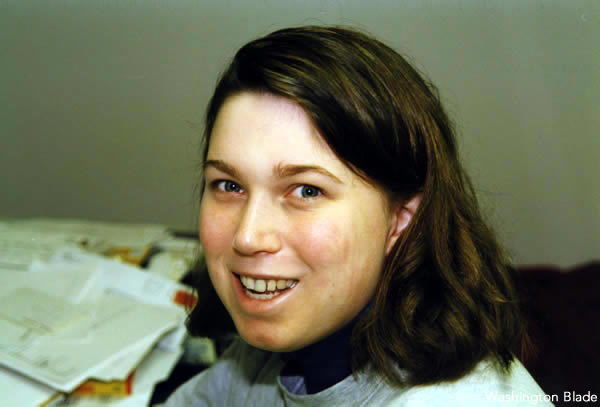
The thing I remember most about the Blade was the company’s elegant balance as a fun and often lighthearted atmosphere that was also a professional workplace where we were serious about our mission and our product. I felt close to everyone in the newsroom, especially as I rose the editor ranks and started supervising people who had been my colleagues. It was an honor to be trusted with that role. I remember the work being challenging but rewarding, every day of my tenure there, until the ownership changed and some workplace issues started clouding my focus on the news. I felt an obligation to the community the entire time I worked at the Blade, because it was so important to get the information correct, to be fair, to create a record for information and developments that the mainstream media was only beginning to cover. And I also felt a responsibility to act with objectivity and to give fair and respectful treatment to adversaries of the community or its civil rights work. That was sometimes difficult, but it made me a better journalist and, I think, a better person.
I grew up in that job, and I had fun doing it. It was an exciting time to cover gay civil rights issues — news was always developing and it felt like we as a community were on the brink of big things. Indeed, the big things gradually took shape. I often think about the current presidential administration and how working at the Blade would be so different now, and likely frustrating, as significant pieces of the progress we covered is at risk of (or in the process of) being rolled back.
The Blade was, I insisted then and maintain now, the most reliable and professional source of hard news about the gay movement anywhere in the world when I worked there, for most of the 90s and into the next decade, And that was quite something to be part of. I always had such deep respect for the people who hired me and shaped me into a professional — Don Michaels and Lisa Keen — because they gave their careers to being the daily historians of a civil rights movement. The same is true for the longest-tenured Blade staffer in history, Lou Chibbaro Jr., whose professionalism and hard-nosed reporting style made each issue of the paper better. I was fond of everyone on the staff, but those three really made that newspaper into an institution I was proud to participate in.
RHONDA SMITH, Blade reporter, features editor, 1997-2005; intern, 1984
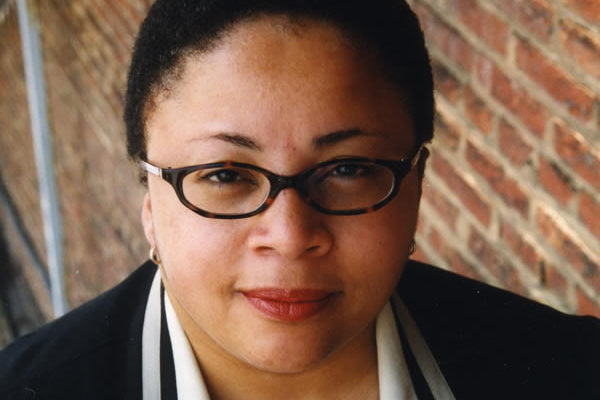
I was a journalism undergraduate at Howard University during the early 1980s when I became an intern at the Washington Blade under the tutelage of Lisa Keen and Don Michaels. At the time, I was just coming out and trying to find my way in the world as the daughter of a Southern Baptist minister and a public school teacher from a small town in Texas. The Blade helped shape a key part of my identity in a way that few others did at that time.
I get nitty-gritty details about the LGBTQ experience from the Blade that other media organizations might still tend to gloss over. Writers and editors at the Blade take a deeper dive on topics that help determine the extent to which we thrive. The Blade reminds me that my sexual orientation is a blessing that should be embraced.
My favorite memory working at the Blade: Watching Lou Chibbaro, Jr. get the story.
BRIAN MOYLAN, Blade intern, reporter and features editor, 2000-2006
Gather round, children and let Grandpa Moylan tell you about the bad old days before marriage equality, Grindr, and RuPaul’s Drag Race. In 2000, during my senior year at George Washington University I was about to graduate and needed a job badly. As an English major with a minor in Thursday College Night at Badlands, I didn’t have many prospects, so I opened up the Washington Blade and faxed my resume to every job listing in the want ads. Don’t worry, kids, if you don’t understand half of the things in the previous sentence.
The only two responses I got from my resume were from the Blade itself and the Crew Club, both of them situated on 14th Street when you were more likely to see a prostitute or a shooting in the area rather than an Aesop. I interviewed at the Blade and, as I was getting dressed to go to my interview at the Crew Club, managing editor Kristina Campbell called and told me I got the job. I decided to ditch the Crew Club and become a journalist instead of a jizz mopper. It was my Gwyneth Paltrow “Sliding Doors” moment.
I was an editorial assistant making $22,000 a year, which was not very much even back then. One of my first responsibilities was to go to the Supreme Court and pick up the rulings for Boy Scouts of America V. Dale, where the court ruled it was perfectly acceptable for private groups to discriminate against gay people. It was a startling setback and I thought, “This is going to be a tough job if the news is always this bad.”
The news, back then was often bad: Iowa’s governor rescinded gay protections already in place, several states banned same-sex adoptions, the Millennium March stiffed its vendors, hate crimes bills got voted down left and right, “Brokeback Mountain” lost to “Crash.” Seriously? Crash?! To make it even worse, Cobalt even burned down. Then George W. Bush was elected and things got even worse as that closet case Ken Mehlman used gay marriage bans to stoke Republican turnout at the polls. Often being at work was painful.
But looking back at my time at the Blade (where I eventually rose to be the features editor before I quit in 2006 to move to New York), I don’t remember all of that awful news. Most of all what I remember is the amazing people I worked with, especially Campbell, Lyn Stoessen, and Will O’Bryan, the patient lesbians who taught me how to be a journalist. (Don’t worry, Will always self-identified as a lesbian.) And of course I think of Kevin Naff, still running the gay paper of record, and Lou Chibbaro Jr., the best reporter I have ever encountered in 20 years in journalism. (I also think of the one coworker I slept with, but we should probably not be naming names.)
Secondly, what I remember are all of the amazing events I covered. As an editorial assistant I had to go to a gay community meeting every week and report on it. I met gay SCUBA divers, Black and White Men Together, gay gun enthusiasts, Log Cabin Republicans, and gay affinity groups for every religion you could possibly imagine, including gay atheists. I think of every High Heel Race, all of the Black Prides, each of Ed Bailey’s amazing Madonnaramas at Velvet Nation, all the gay cowboys at the Atlantic Stampede, every film I reviewed at the Reel Affirmations film festival (even the wretched musical based on Matthew Shepherd’s murder).
The Blade ushered a 21-year-old kid from a small town in Connecticut into a gay community far more vibrant than he ever could have imagined. It taught me that no matter how bad things got or how slowly progress came, that we always had each other, that there was always a reason to celebrate, and another Halloween was just around the corner.
By and large many of the things we were fighting for back in the early 2000s — marriage equality, the end of the gay military ban, outing Ken Mehlman — have come to pass. Gay news these days is much sunnier and is covered by every outlet from Vice to the New York Times. But that doesn’t mean that the Blade is obsolete. The one thing it will always have going for it is that it is of the community and by the community. No one else had the dedication or support to make it through 50 years of the bad old times. I couldn’t be more proud to be a part of that legacy. Back in 2000, the Blade gave me a job and since then it has given me a career in media. But the most important thing it gave me, that it still gives me, is hope.
PHILIP VAN SLOOTEN, Blade intern, 2019
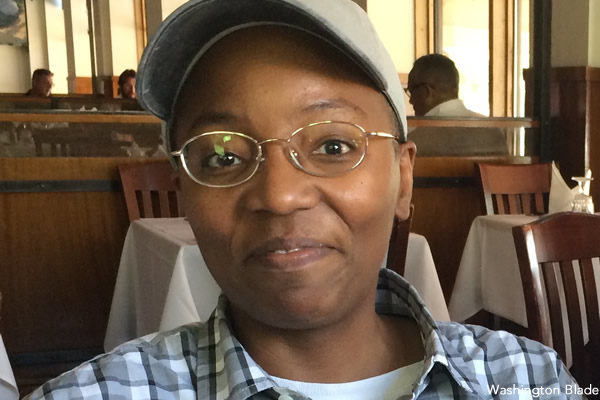
It’s important for the LGBTQ community and our issues to be treated respectfully and normalized in the same manner that mainstream media does for the cisgender-heterosexual community. The Blade takes our lives and opinions on all topics seriously and not just as “quirky” news. For example, the Blade would interview a drag performer about their political views and that becomes the news whereas the news for the straight press is simply that someone performs in drag. Their level of education or insights aren’t of interest.
I’ve read a few other LGBTQ publications in the region and very few strive to elevate LGBTQ discourse beyond the sensational.
Movies
Van Sant returns with gripping ‘Dead Man’s Wire’
Revisiting 63-hour hostage crisis that pits ethics vs. corporate profits
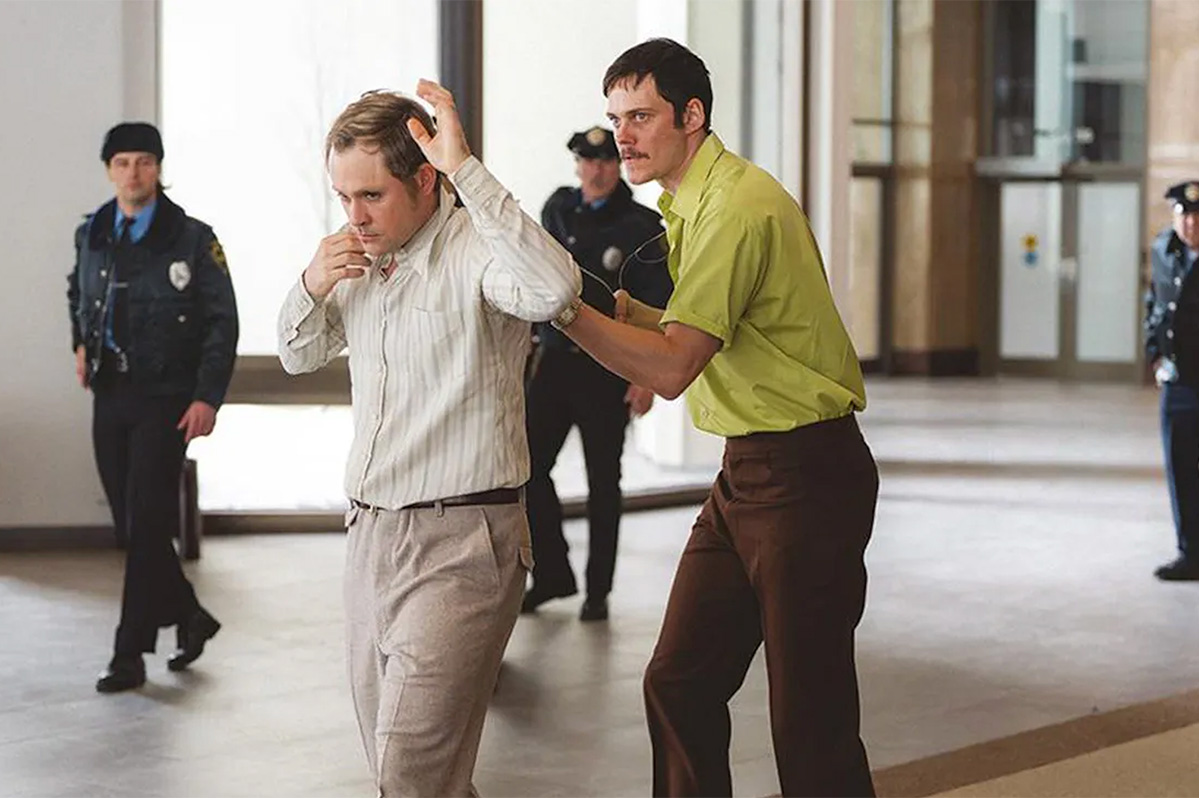
In 1976, a movie called “Network” electrified American moviegoers with a story in which a respected news anchor goes on the air and exhorts his viewers to go to their windows and yell, “I’m mad as hell, and I’m not going to take this anymore!”
It’s still an iconic line, and it briefly became a familiar catch phrase in the mid-’70s lexicon of pop culture, the perfect mantra for a country worn out and jaded by a decade of civil unrest, government corruption, and the increasingly powerful corporations that were gradually extending their influence into nearly all aspects of American life. Indeed, the movie itself is an expression of that same frustration, a satire in which a man’s on-the-air mental health crisis is exploited by his corporate employers for the sake of his skyrocketing ratings – and spawns a wave of “reality” programming that sensationalizes outrage, politics, and even violence to turn it into popular entertainment for the masses. Sound familiar?
It felt like an exaggeration at the time, an absurd scenario satirizing the “anything-for-ratings” mentality that had become a talking point in the public conversation. Decades later, it’s recognized as a savvy premonition of things to come.
This, of course, is not a review of “Network.” Rather, it’s a review of the latest movie by “new queer cinema” pioneer Gus Van Sant (his first since 2018), which is a fictionalized account of a real-life on-the-air incident that happened only a few months after “Network” prompted national debate about the media’s responsibility in choosing what it should and should not broadcast – and the fact that it strikes a resonant chord for us in 2026 makes it clear that debate is as relevant as ever.
“Dead Man’s Wire” follows the events of a 63-hour hostage situation in Indianapolis that begins when Tony Kiritsis (Bill Skarsgård) shows up for an early morning appointment at the office of a mortgage company to which he is under crippling debt. Ushered into a private office for a one-on-one meeting with Dick Hall (Dacre Montgomery), son of the brokerage’s wealthy owner, he kidnaps the surprised executive at gunpoint and rigs him with a “dead man’s wire” – a device that secures a shotgun against a captive’s head that is triggered to discharge with any attempt at escape – before calling the police himself to issue demands for the release of his hostage, which include immunity for his actions, forgiveness of his debt, reimbursement for money he claims was swindled from him by the company, and an apology.
The crisis becomes a public spectacle when Kiritsis subjects his prisoner to a harrowing trip through the streets back to his apartment, which he claims is wired with explosives. As the hours tick by, the neighborhood surrounding his building becomes a media circus. Realizing that law enforcement officials are only pretending to negotiate while they make plans to take him down, he enlists the aid of a popular local radio DJ Fred Heckman (Colman Domingo) to turn the situation into a platform for airing his grievances – and for calling out the predatory financial practices that drove him to this desperate situation in the first place.
We won’t tell you how it plays out, for the sake of avoiding spoilers, even though it’s all a matter of public record. Suffice to say that the crisis reaches a volatile climax in a live broadcast that’s literally one wrong move away from putting an explosion of unpredictable real-life violence in front of millions of TV viewers.
In 1977, the Kiritsis incident certainly contributed to ongoing concerns about violence on television, but there was another aspect of the case that grabbed public attention: Kiritsis himself. Described by those who knew him as “helpful,” “kind,” and a “hard worker,” he was hardly the image of a hardened criminal, and many Americans – who shared his anger and desperation over the opportunistic greed of a finance industry they believed was playing them for profit – could sympathize with his motives. Inevitably, he became something of a populist hero – or anti-hero, at least – for standing up to a stacked system, an underdog who spoke things many of them felt and took actions many of them wished they could take, too.
That’s the thing that makes this true-life crime adventure uniquely suited to the talents of Van Sant, a veteran indie auteur whose films have always specialized in humanizing “outsider” characters, usually pushed to the fringes of society by circumstances only partly under their own control, and often driven to desperate acts in pursuit of an unattainable dream. Tony Kiritsis, a not-so-regular “Joe” whose fumbling efforts toward financial security have been turned against him and seeks only recompense for his losses, fits that profile to a tee, and the filmmaker gives us a version of him (aided by Skarsgård’s masterfully modulated performance) that leaves little doubt that he – from a certain point of view, at least – is the story’s unequivocal protagonist, no matter how “lawless” his actions might be.
It helps that the film gives us much more exposure to Kiritsis’ personality than could be seen merely during the historic live broadcast that made him infamous, spending much of the movie focused on his interactions with Hall (performed with equally well-managed nuance by Montgomery) during the two days spent in the apartment, as well as his dealings with DJ Heckman (rendered with savvy and close-to-the-chest cageyness by Domingo); for balance, we also get fly-on-the-wall access to the interplay outside between law enforcement officials (including Cary Elwes’ blue collar neighborhood cop) as they try to navigate a potentially deadly situation, and to the jockeying of an ambitious rookie street reporter (Myha’la) with the rest of the press for “scoops” with each new development.
But perhaps the interaction that finally sways us in Kiritsis’s favor takes place via phone with his captive’s mortgage tycoon father (Al Pacino, evoking every unscrupulous, amoral mob boss he’s ever played), who is willing to sacrifice his own son’s life rather than negotiate a deal. It’s a nugget of revealed avarice that was absent in the “official” coverage of the ordeal, which largely framed Kiritsis as mentally unstable and therefore implied a lack of credibility to his accusations against Meridian Mortgage. It’s also a moment that hits hard in an era when the selfishness of wealthy men feels like a particularly sore spot for so many underdogs.
That’s not to say there’s an overriding political agenda to “Dead Man’s Wire,” though Van Sant’s character-driven emphasis helps make it into something more than just another tension-fueled crime story; it also works to raise the stakes by populating the story with real people instead of predictable tropes, which, coupled with cinematographer Arnaud Potier’s studied emulation of gritty ‘70s cinema and the director’s knack for inventive visual storytelling, results in a solid, intelligent, and darkly humorous thriller – and if it reconnects us to the “mad-as-hell” outrage of the “Network” era, so much the better.
After all, if the last 50 years have taught us anything about the battle between ethics and profit, it’s that profit usually wins.
Books
‘The Director’ highlights film director who collaborated with Hitler
But new book omits gay characters, themes from Weimar era

‘The Director’
By Daniel Kehlmann
Summit Books, 2025
Garbo to Goebbels, Daniel Kehlmann’s historical novel “The Director” is the story of Austrian film director G.W. Pabst (1885-1967) and his descent down a crooked staircase of ambition into collaboration with Adolph Hitler’s film industry and its Minister of Propaganda Joseph Goebbels. Kehlmann’s historical fiction is rooted in the world of Weimar German filmmaking and Nazi “Aryan” cinema, but it is a searing story for our challenging time as well.

Pabst was a legendary silent film director from the Weimar Republic’s Golden Era of filmmaking. He “discovered” Greta Garbo; directed silent screen star Louise Brooks; worked with Hitler’s favored director Leni Riefenstahl (“Triumph of the Will”); was a close friend of Fritz Lang (“Metropolis”); and lived in Hollywood among the refugee German film community, poolside with Billy Wilder (“Some Like it Hot”) and Fred Zinnemann (“High Noon”) — both of whose families perished in the Holocaust.
Yet, Pabst left the safety of a life and career in Los Angeles and returned to Nazi Germany in pursuit of his former glory. He felt the studios were giving him terrible scripts and not permitting him to cast his films as he wished. Then he received a signal that he would be welcome in Nazi Germany. He was not Jewish.
Kehlmann, whose father at age 17 was sent to a concentration camp and survived, takes the reader inside each station of Pabst’s passage from Hollywood frustration to moral ruin, making the incremental compromises that collectively land him in the hellish Berlin office of Joseph Goebbels. In an unforgettably phantasmagoric scene, Goebbels triples the stakes with the aging filmmaker, “Consider what I can offer you….a concentration camp. At any time. No problem,” he says. “Or what else…anything you want. Any budget, any actor. Any film you want to make.” Startled, paralyzed and seduced by the horror of such an offer, Pabst accepts not with a signature but a salute: “Heil Hitler,” rises Pabst. He’s in.
The novel develops the disgusting world of compromise and collaboration when Pabst is called in to co-direct a schlock feature with Hitler’s cinematic soulmate Riefenstahl. Riefenstahl, the “Directress” is making a film based on the Fuhrer’s favorite opera. She is beautiful, electric and beyond weird playing a Spanish dancer who mesmerizes the rustic Austrian locals with her exotic moves. The problem is scores of extras will be needed to surround and desire Fraulein Riefenstahl. Mysteriously, the “extras” arrive surprising Pabst who wonders where she had gotten so many young men when almost everyone was on the front fighting the war. The extras were trucked in from Salzburg, he is told, “Maxglan to be precise.” He pretends not to hear. Maxglan was a forced labor camp for “racially inferior” Sinti and Roma gypsies, who will later be deported from Austria and exterminated. Pabst does not ask questions. All he wants is their faces, tight black and white shots of their manly, authentic, and hungry features. “You see everything you don’t have,” he exhorts the doomed prisoners to emote for his camera. Great art, he believes, is worth the temporal compromises and enticements that Kehlmann artfully dangles in the director’s face. And it gets worse.
One collaborates in this world with cynicism born of helpless futility. In Hollywood, Pabst was desperate to develop his own pictures and lure the star who could bless his script, one of the thousands that come their way. Such was Greta Garbo, “the most beautiful woman in the world” she was called after being filmed by Pabst in the 1920s. He shot her close-ups in slow motion to make her look even more gorgeous and ethereal. Garbo loved Pabst and owed him much, but Kehlmann writes, “Excessive beauty was hard to bear, it burned something in the people around it, it was like a curse.”
Garbo imagined what it would be like to be “a God or archangel and constantly feel the prayers rising from the depths. There were so many, there was nothing to do but ignore them all.” Fred Zinnemann, later to direct “High Noon”, explains to his poolside guest, “Life here (in Hollywood) is very good if you learn the game. We escaped hell, we ought to be rejoicing all day long, but instead we feel sorry for ourselves because we have to make westerns even though we are allergic to horses.”
The texture of history in the novel is rich. So, it was disappointing and puzzling there was not an original gay character, a “degenerate” according to Nazi propaganda, portrayed in Pabst’s theater or filmmaking circles. From Hollywood to Berlin to Vienna, it would have been easy to bring a sexual minority to life on the set. Sexual minorities and gender ambiguity were widely presented in Weimar films. Indeed, in one of Pabst’s films “Pandora’s Box” starring Louise Brooks there was a lesbian subplot. In 1933, when thousands of books written by, and about homosexuals, were looted and thrown onto a Berlin bonfire, Goebbels proclaimed, “No to decadence and moral corruption!” The Pabst era has been de-gayed in “The Director.”
“He had to make films,” Kehlmann cuts to the chase with G.W. Pabst. “There was nothing else he wanted, nothing more important.” Pabst’s long road of compromise, collaboration and moral ruin was traveled in small steps. In a recent interview Kehlmann says the lesson is to “not compromise early when you still have the opportunity to say ‘no.’” Pabst, the director, believed his art would save him. This novel does that in a dark way.
(Charles Francis is President of the Mattachine Society of Washington, D.C., and author of “Archive Activism: Memoir of a ‘Uniquely Nasty’ Journey.”)
The Blade may receive commissions from qualifying purchases made via this post.
Theater
Swing actor Thomas Netter covers five principal parts in ‘Clue’
Unique role in National Theatre production requires lots of memorization
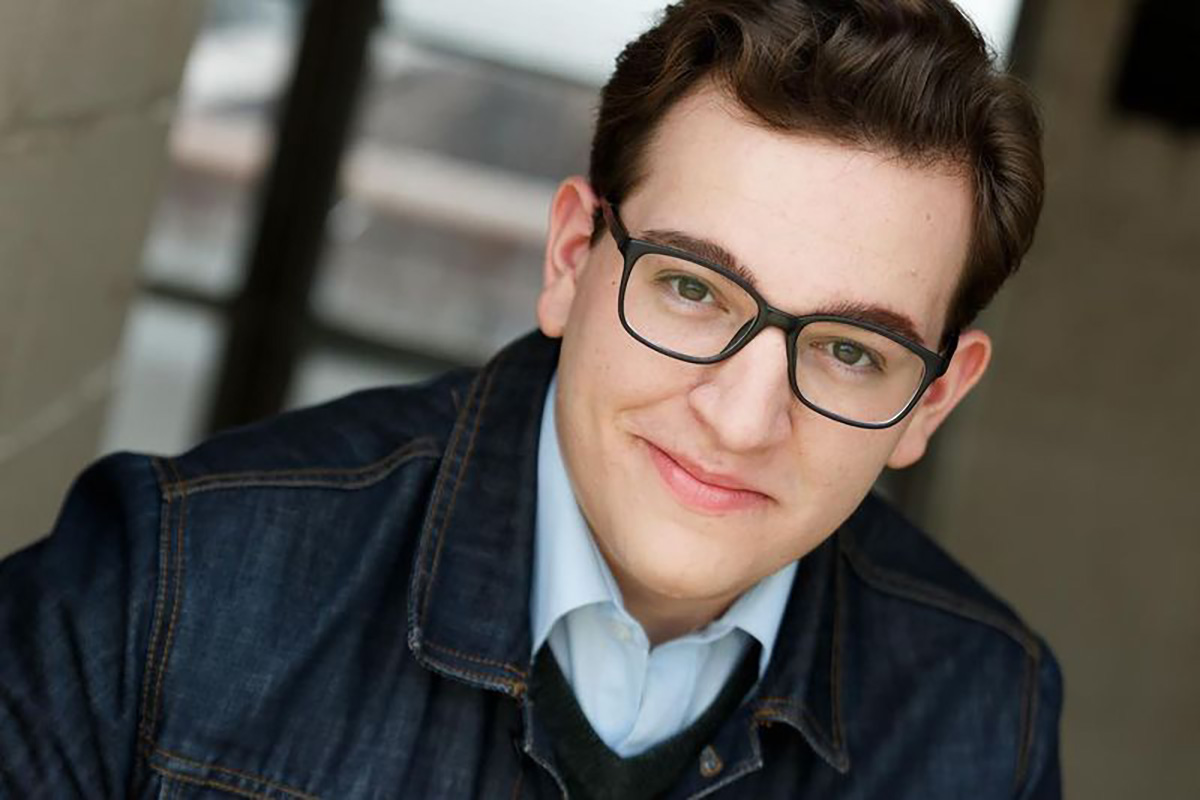
‘Clue: On Stage’
Jan. 27-Feb. 1
The National Theatre
1321 Pennsylvania Ave., N.W.
thenationaldc.com
Out actor Thomas Netter has been touring with “Clue” since it opened in Rochester, New York, in late October, and he’s soon settling into a week-long run at D.C.’s National Theatre.
Adapted by Sandy Rustin from the same-titled 1985 campy cult film, which in turn took its inspiration from the popular board game, “Clue” brings all the murder mystery mayhem to stage.
It’s 1954, the height of the Red Scare, and a half dozen shady characters are summoned to an isolated mansion by a blackmailer named Mr. Boddy where things go awry fairly fast. A fast-moving homage to the drawing room whodunit genre with lots of wordplay, slapstick, and farce, “Clue” gives the comedic actors a lot to do and the audience much to laugh at.
When Netter tells friends that he’s touring in “Clue,” they inevitably ask “Who are you playing and when can we see you in it?” His reply isn’t straightforward.
The New York-based actor explains, “In this production, I’m a swing. I never know who’ll I play or when I’ll go on. Almost at any time I can be called on to play a different part. I cover five roles, almost all of the men in the show.”
Unlike an understudy who typically learns one principal or supporting role and performs in the ensemble nightly, a swing learns any number of parts and waits quietly offstage throughout every performance just in case.
With 80 minutes of uninterrupted quick, clipped talk “Clue” can be tough for a swing. Still, Netter, 28, adds, “I’m loving it, and I’m working with a great cast. There’s no sort of “All About Eve” dynamic going on here.”
WASHINGTON BLADE: Learning multiple tracks has got to be terrifying.
THOMAS NETTER: Well, there certainly was a learning curve for me. I’ve understudied roles in musicals but I’ve never covered five principal parts in a play, and the sheer amount of memorization was daunting.
As soon as I got the script, I started learning lines character by character. I transformed my living room into the mansion’s study and hallway, and got on my feet as much as I could and began to get the parts into my body.
BLADE: During the tour, have you been called on to perform much?
NETTER: Luckily, everyone has been healthy. But I was called on in Pittsburgh where I did Wadsworth, the butler, and the following day did the cop speaking to the character that I was playing the day before.
BLADE: Do you dread getting that call?
NETTER: Can’t say I dread it, but there is that little bit of stage fright involved. Coming in, my goal was to know the tracks. After I’d done my homework and released myself from nervous energy, I could go out and perform and have fun. After all, I love to act.
“Clue” is an opportunity for me to live in the heads of five totally different archetype characters. As an actor that part is very exciting. In this comedy, depending on the part, some nights it’s kill and other nights be killed.
BLADE: Aside from the occasional nerves, would you swing again?
NETTER: Oh yeah, I feel I’m living out the dream of the little gay boy I once was. Traveling around getting a beat on different communities. If there’s a gay bar, I’m stopping by and meeting interesting and cool people.
BLADE: Speaking of that little gay boy, what drew him to theater?
NETTER: Grandma and mom were big movie musical fans, show likes “Singing in the Rain,” “Meet Me in St. Louis.” I have memories of my grandma dancing me around the house to “Shall We Dance?” from the “King and I” She put me in tap class at age four.
BLADE: What are your career highlights to date?
NETTER: Studying the Meisner techniqueat New York’sNeighborhood Playhouse for two years was definitely a highlight. Favorite parts would include the D’Ysquith family [all eight murder victims] in “A Gentleman’s Guide to Love & Murder,” and the monstrous Miss Trunchbull in “Matilda.”
BLADE: And looking forward?
NETTER: I’d really like the chance to play Finch or Frump in Frank Loesser’s musical comedy “How to Succeed in Business Without Really Trying.”
BLADE: In the meantime, you can find Netter backstage at the National waiting to hear those exhilarating words “You’re on!”



















